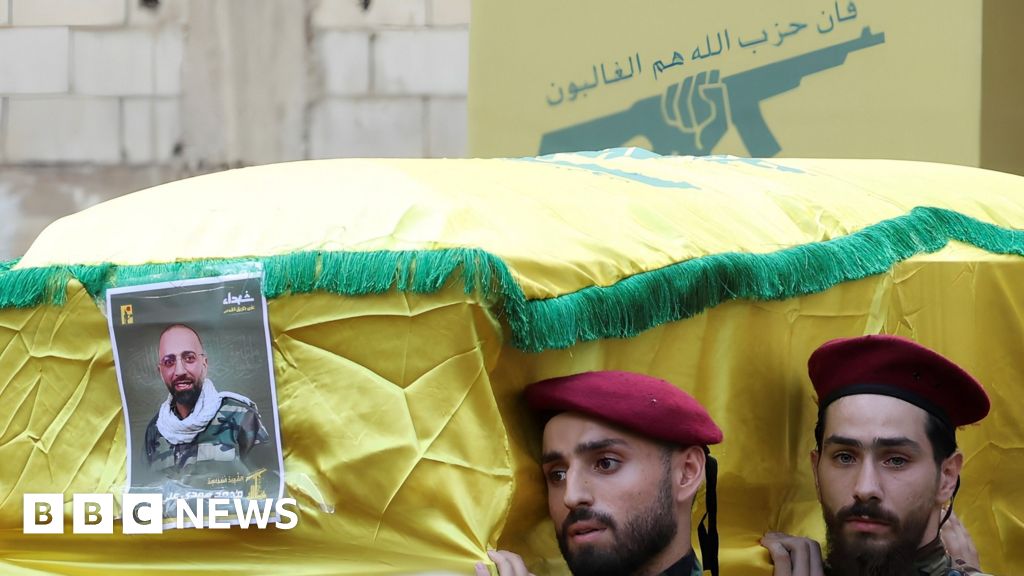Two former Israeli intelligence officers reveal how members of the Lebanese Shiite militant group Hezbollah used Israeli-made walkie-talkies laced with explosives for 10 years before detonating them in a surprise attack in September. did.
Two former Mossad operatives told CBS News how Hezbollah was tricked into buying thousands of fraudulent walkie-talkies and pagers, not knowing they were made in Israel.
The attack left dozens of people dead and thousands injured. Israel said it was coordinated to target only Hezbollah members, but Lebanese officials said civilians were among the casualties.
The UN human rights chief called the attack a war crime.
At the time of the attack, Israel and Hezbollah were in an escalating conflict since Hezbollah opened fire on Israeli positions the day after Hamas’ unprecedented attack on southern Israel on October 7, 2023.
On September 17 this year, thousands of pagers exploded simultaneously across Lebanon, primarily in areas with a strong Hezbollah presence. The explosion injured or killed some occupants and bystanders, and caused widespread panic and confusion.
A similar walkie-talkie explosion the next day killed and injured hundreds more people.
Israeli Prime Minister Benjamin Netanyahu acknowledged Israel’s responsibility two months later, Israeli media reported at the time.
In an interview with CBS, the BBC’s US media partner, the two former agents revealed details of the operation.
One of the agents, named Michael, said Mossad had hidden explosive devices inside batteries that powered walkie-talkies, which he said were usually carried in a vest near the wearer’s heart. .
He said that 10 years ago, Hezbollah unknowingly purchased more than 16,000 transceivers from a fake company at “inflated prices.”
“We have incredible potential to create foreign companies that cannot be traced back to Israel,” Michael said. “The shell company will go beyond the shell company and influence the supply chain in our favor.
“We create make-believe worlds. We are a global production company. We write the script, we are the directors, we are the producers, we are the stars, we are the worlds. is our stage.”
CBS said the operation was expanded to include pagers two years ago.
Mossad said it discovered that Hezbollah was purchasing pagers at the time from a Taiwanese company called Gold Apollo. Without the parent company’s knowledge, he set up a fake company that used the Gold Apollo name on explosive-laden pagers.
CBS said Mossad had planted an explosive inside it powerful enough to only harm the user.
“We test everything three times, twice, multiple times to make sure there’s minimal damage,” said a second agent, whom the program calls Gabriel.
It said Mossad specifically chose ringtones that sounded urgent enough for someone to check incoming messages.
Gabriel said authorities tricked Hezbollah into buying pagers and creating advertising films and pamphlets to share on the internet.
“When they’re buying from us, they have no idea that they’re buying from Mossad,” he said. “We’re making something like The Truman Show. Everything is controlled by us behind the scenes.”
CBS reports that Hezbollah has purchased 5,000 booby-trapped pagers by September 2024.
They were brought in by Israel when Mossad feared it was becoming suspicious of Hezbollah, the paper said.
The explosion shocked all of Lebanon, with explosions occurring everywhere pagers were being carried, including supermarkets. Hospitals were overflowing with injured people, many of them seriously.
Gabriel said there were “strong rumors” that people were also sacrificed in front of then-Hezbollah leader Hassan Nasrallah.
Days later, with Hezbollah still reeling from the attack, Israel launched heavy airstrikes against Hezbollah targets, followed by a ground invasion into Lebanon.
The two countries agreed to a ceasefire on November 26th.
Lebanon strongly condemned the pager and walkie-talkie attacks, and UN human rights chief Volker Turk said he was “appalled” by the attacks.
He said this method of attack “violates international human rights law and, in some cases, international humanitarian law.”



